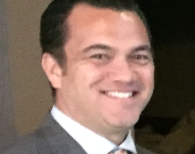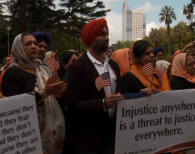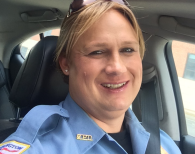The goal of all community minded police officers should be to make themselves obsolete.
Sgt. Jessica Hawkins, the Gay and Lesbian Liaison Unit (GLLU) supervisor for the Metro D.C. Police Department, says that’s an ideal situation.
law enforcement

Hassan Aden says an effective police chief must focus not just on what’s going on in his department, but be transparent with those outside of it.
“In order to change the culture, they have to latch onto you, believe in you,” Aden said. “The reality is that a new chief has to remain apolitical, but be politically adept.”

San Francisco has been a bastion for gay rights and acceptance, famously charioted by Harvey Milk’s election to the city’s board of supervisors. Yet even 37 years after his assassination, 60 percent of all of San Francisco’s hate crimes are against gay men.
Sgt. Peter Shields of the San Francisco Police Department’s Special Investigation Division is tasked with investigating these and other hate crimes. He says the other common ones include violence against transgendered people and graffiti against whites, blacks, Jews, and other groups.
Paul A. Di Lella is the Director of Law Enforcement Relations for Not In Our Town. He is an attorney and a recently retired prosecutor from the Passaic County Prosecutor’s Office in New Jersey. In a law enforcement career spanning 20 years, he served in multiple roles including as a Senior Assistant Prosecutor in the Trial Unit and the White Collar Crime Unit and as the Supervisor of the Public Integrity and Organized Crime Unit.
Prior to his retirement, he was appointed the Director of the Passaic County Narcotics, Gangs and Violent Crimes Task Force where he was responsible for the supervision of the legal and law enforcement task force members and all aspects of criminal prosecutions on behalf of the State of New Jersey.

Last fall, Alexandria’s Inclusion Network conducted a two-day training for first-year law enforcement students at the Alexandria Technical and Community College. Graduates from the program frequently apply for the state patrol or end up serving at departments and agencies across the country, including border patrol.

On July 24, 2013 we kicked off our first in a series of webinars as part of our partnership with the U.S. Department of Justice Community Oriented Policing Services (COPS) Office. In this inaugural webinar, we brought together a representative from the COPS Office, 13 members of the Not In Our Town law enforcement cadre, and law enforcement professionals who have used Not In Our Town successfully in the field to share their stories.
If you weren’t able to join us, here’s a recap complete with shared presentations and useful tools.

Harpreet Singh Saini is sworn in before testifying. Photo Credit: AP
“I want to tell the gunman who took her from me: You may have been full of hate, but my mother was full of love,” said Harpreet Singh Saini, who lost his mother in the tragic hate crime killings at a Sikh gurdwara in Oak Creek Wisconsin on Aug. 5.

We joined Oak Creek, WI for a vigil and funeral after the mass shootings at the Sikh Temple of Wisconsin. In this short film, we witness the community coming together in the wake of tragedy.
Thousands gather in the center of town to support the Sikh community in the aftermath of the Aug. 5, 2012 hate crime killing at the Sikh Temple of Wisconsin in Oak Creek, a suburb of Milwaukee. Mayor Steve Scaffidi, Police Chief John Edwards, and Amardeep Kaleka, son of the slain temple president, share prayers and hopes for peace and unity. Days later, the community comes together again for a memorial service for the six victims of the attack.

Our hearts and thoughts are with the community of Oak Creek, Wisconsin today, after yesterday's tragic shooting at a Sikh temple that claimed seven lives—including the gunman—and left three wounded.
The Sikh community has been a target of hate since the Sept. 11, 2001 terrorist attacks and often mistaken for Muslim. Yesterday's tragedy reminds us of the two Sikh grandfathers who were shot during their daily stroll in Elk Grove, Calif. in March 2011. We joined the community seven days after the shootings and documented their interfaith vigil, and again, for the community's Sikh Solidarity Day, detailed below.
This piece is an example of community solidarity with the Sikh community and law enforcement leadership.
One of the community leaders in Elk Grove was Amar Shergill, a West Sacramento attorney who is a board member of that city's Sikh temple and the American Sikh Political Action Committee. He spoke about Oak Creek, Wisconisin's tragedy with the local Patch.

Find Free Films and Resources at NIOT.org/COPS/videos
The Need for Hate Crime Laws
